Nancy Astor: Theresa May unveils statue for pioneering female MP
- Published
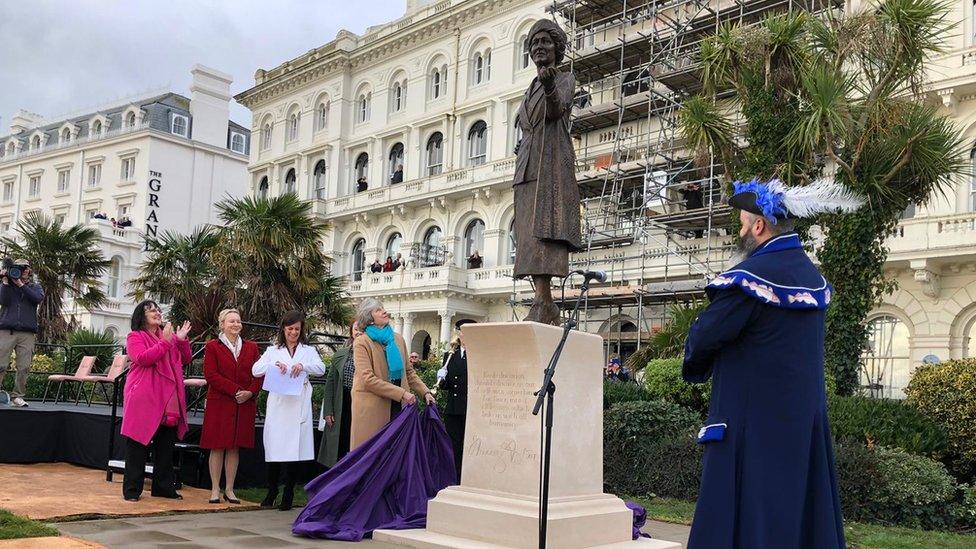
Theresa May said she was "delighted" to unveil the statue of Lady Astor
The first female MP to take her seat in the House of Commons has been honoured exactly 100 years after her election.
On 28 November 1919, Nancy Astor was elected to represent Plymouth Sutton in Parliament.
Former prime minister Theresa May unveiled a statue to Lady Astor on Plymouth Hoe.
A Great Western Railway train has also been named after Lady Astor, and travelled from London Paddington station to Plymouth for the unveiling.
Mrs May said: "Plymouth and the whole country should be proud of the great strides Nancy Astor made for equality and representation."
She added she was "delighted" to unveil the statue and Lady Astor was a "truly remarkable woman".
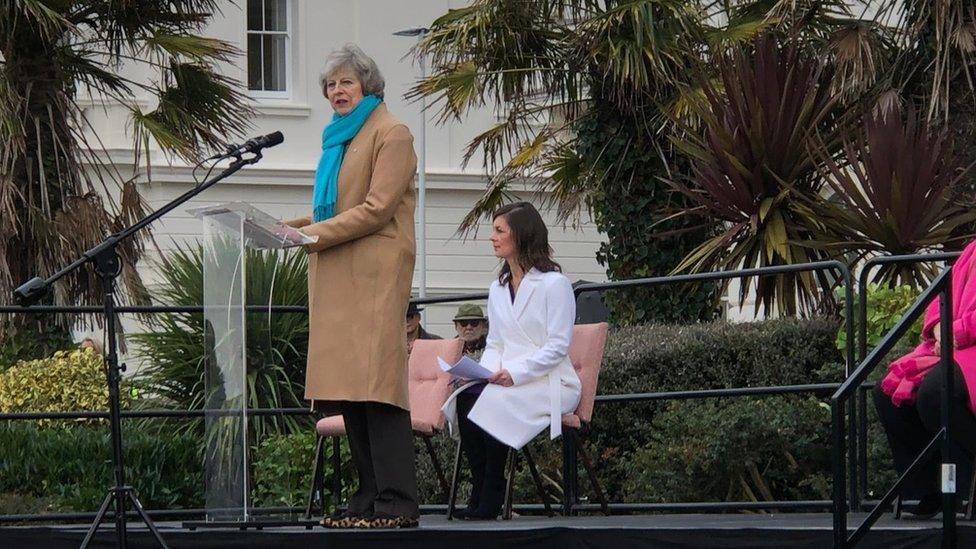
Mrs May said there should be "more monuments to the great women of the past" during her speech at the unveiling
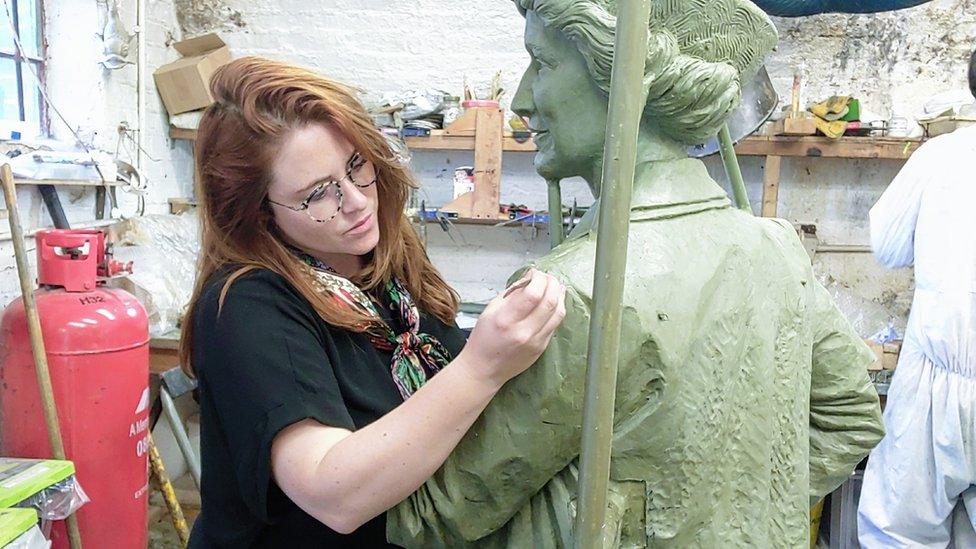
A crowdfunding campaign raised money for Hayley Gibbs to cast the bronze statue
More than £125,000 was raised by the Nancy Astor Statue Appeal for a bronze statue to be cast by sculptor Hayley Gibbs.
The unveiling of the statue took place outside Lady Astor's former home.
Lady Astor was born in Virginia, United States, in 1879 and moved to England in 1904 after a failed first marriage.
In 1906, she met and married wealthy politician Waldorf Astor who became the Conservative MP for Plymouth Sutton in 1910.
He relinquished his seat when his father died, because he inherited his title of Viscount Astor and his place in the House of Lords.
His wife decided to stand in Plymouth Sutton in his place.
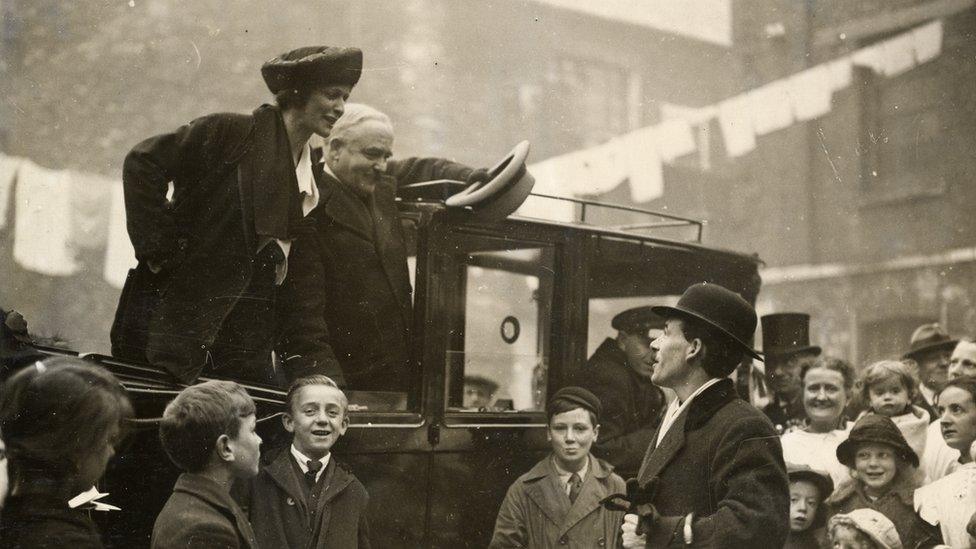
Lady Astor held the Plymouth seat for 26 years between 1919 and 1945
Lady Astor was not the first woman to be elected, but she was the first to take up her seat in the House of Commons.
Constance Markievticz was the first woman to be elected in 1918, but her membership of the Irish republican party Sinn Féin stopped her from taking the oath.
You may also be interested in:
Lady Astor beat her Liberal rival Isaac Foot, father of 1980s Labour leader Michael Foot, in the General Election in 1919.
As an MP she advocated for women's rights and stricter restrictions on alcohol, and in 1923 she introduced a Private Member's Bill which raised the age qualification for buying alcohol to 18.
Lady Astor was also a controversial figure who faced accusations of appeasement, anti-Catholicism and anti-Semitism in her lifetime, which were addressed by campaigners for the statue on their website, external.
She was Plymouth Sutton's MP until she stood down in 1945.

Nancy Astor
1879 - Born to parents Chiswell Dabney Langhorne and Nancy Witcher Keene in Virginia, United States
1905 - Leaves for England on a cruise ship where she meets her second husband and politician Waldorf Astor
28 November 1919 - Stands for her husband's previous parliamentary seat in Plymouth Sutton, and wins
1 December 1919 - Takes up her seat in the House of Commons as a Conservative party member
1945 - Stands down as MP

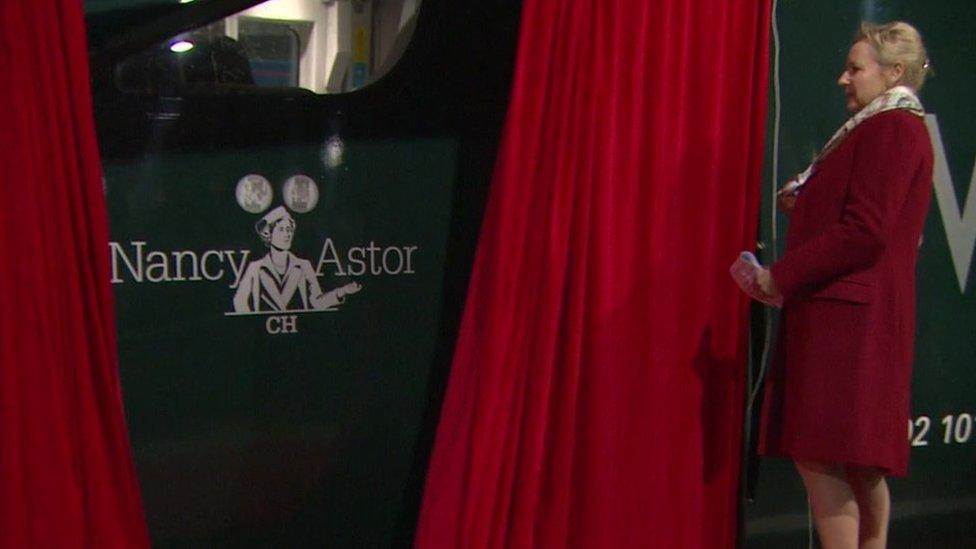
A Great Western Railway train has also been named after Nancy Astor
In honour of the anniversary, members of Lady Astor's family travelled to the unveiling on board the newly named train.
GWR managing director Mark Hopwood said: "There is no doubt that Nancy Astor was an outstanding role model for women and changed the way our Parliament looks and acts."
Dr Helen Pankhurst, the great granddaughter of Emmeline Pankhurst - who led the suffragette movement - attended the unveiling of the train.
"They [suffragettes] would be saying - much as everyone has been saying today - we have to celebrate and honour," she said.
"It's phenomenal how far we've got but fundamentally we still have so much to do."
Update 12th February 2020: This article has been updated to explain that Lady Astor was also a controversial figure who has faced criticism for her beliefs, including accusations of anti-Semitism.
- Published2 November 2018
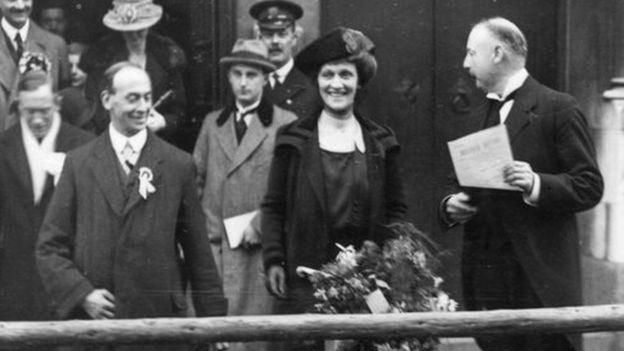
- Published15 November 2017
